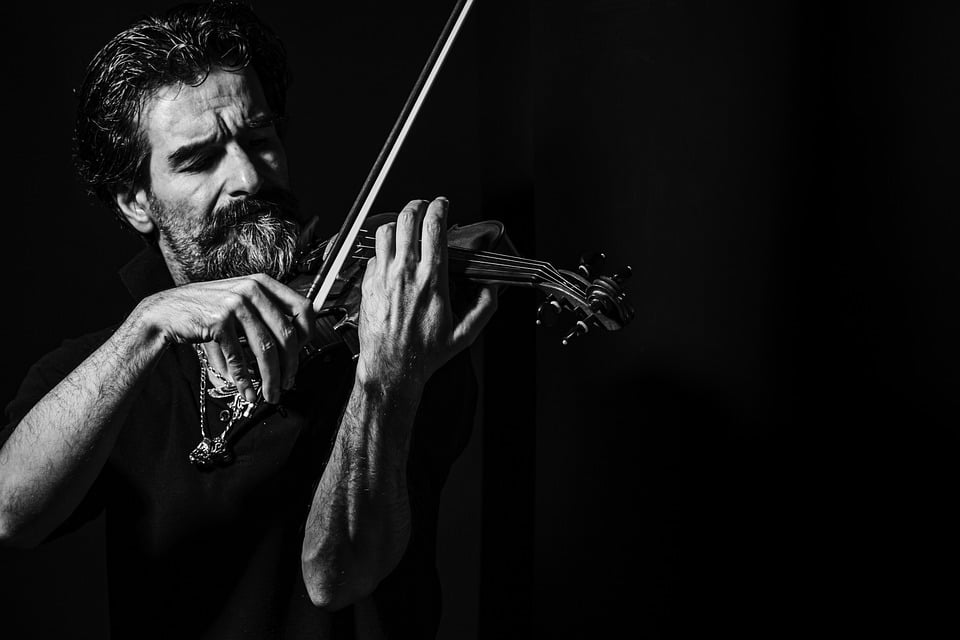When using content from Pond5, it’s essential to understand the proper way to credit the creators behind the music and other multimedia assets. This guide will provide you with detailed steps and best practices to ensure that you respect copyright laws and give recognition to the original artists.
Introduction to Pond5
Pond5 is a popular online marketplace for buying and selling royalty-free media, including music, sound effects, video footage, and images. Founded in 2006, it has grown into one of the largest platforms for creative professionals seeking high-quality content. When you use any media from Pond5, proper attribution is crucial not only for legal reasons but also to support the artists who create these works. In this guide, we will discuss how to properly credit music sourced from Pond5 and why it matters.
The Importance of Proper Credit
Properly crediting artists is fundamental in the creative community. It acknowledges the effort and talent that goes into creating music. When you credit a musician or a composer, you foster a culture of respect and recognition. This not only helps the artist gain exposure but can also lead to potential collaborations and networking opportunities.
Moreover, failing to credit artists can lead to legal repercussions. Copyright laws protect creators, and using their work without permission or acknowledgment can result in fines or legal action. Therefore, understanding how to credit music from Pond5 is not only a matter of ethics but also a legal requirement.
Understanding Pond5 Licensing Options
Pond5 offers various licensing options for its music tracks, which dictate how you can use the content and how to credit it. The most common licenses are the Royalty-Free License and the Extended License. Each type has different rules regarding usage, distribution, and crediting.
Under the Royalty-Free License, you can use the music in most projects without paying additional fees after the initial purchase. However, it’s still essential to credit the artist appropriately. The Extended License allows for broader usage, including high-traffic projects, but still requires crediting as specified in the license agreement.
Steps to Properly Credit Music from Pond5
To ensure that you credit the music properly, follow these steps:
1. Check the License Agreement
Before using any track, review the license agreement associated with it. Pond5 provides clear guidelines on what is required for crediting based on the type of license. This document will outline how and where to give credit.
Pay special attention to any specific instructions mentioned in the agreement. Some artists may have preferences regarding how they want to be credited, so it’s essential to follow these guidelines closely.
2. Include the Artist’s Name
One of the simplest ways to credit a musician is by including their name in your project. This can be done in the credits section of a video or in the description of a podcast or online post. For example, you could write: “Music by [Artist’s Name].” Including their name not only gives credit but also allows your audience to discover more of their work.
Make sure you spell the artist’s name correctly. A misspelled name can diminish the impact of your credit and may even lead to confusion if someone tries to search for their work.
3. Mention the Track Title
In addition to the artist’s name, always mention the title of the track. This helps viewers identify the specific piece used in your project. For example, you could say, “Track: [Track Title] by [Artist’s Name].” This information is valuable for those who may want to find the same music for their projects.
Providing both the artist’s name and the track title gives proper context and enhances the professionalism of your work. It shows that you respect the artist’s contributions and are serious about your own creative output.
4. Link to the Track
Linking directly to the track on Pond5 is another excellent way to provide credit. This can be particularly useful in digital formats such as online videos, blogs, or social media posts. By including a hyperlink, you make it easy for your audience to access the music directly.
However, ensure that the link is functional and leads directly to the track you used. A broken link can frustrate viewers and diminish their experience. It’s also a good practice to check your links periodically to ensure they remain active.
5. Follow Credit Guidelines for Different Media
The way you credit music may vary depending on the type of media you are producing. For instance, in a video, you might display the credit at the beginning or end of the video. In written content like blogs or articles, you could include credits in a footer or at the end of the post.
For audio projects like podcasts, mention the track and artist during the introduction or conclusion. Adapting your crediting style to fit the medium is crucial for maintaining professionalism and clarity.
Common Mistakes to Avoid When Crediting
While it’s essential to credit music properly, there are common mistakes that people often make. Avoiding these pitfalls can help you maintain a good relationship with artists and stay within legal boundaries.
1. Omitting Credits Altogether
One of the most significant mistakes is failing to credit the artist at all. This can lead to legal issues and damage your reputation in the creative community. Always ensure that credit is given, regardless of the project size or scope.
Even if you believe the project is small or unlikely to be seen by many, you should still provide credit. Every piece of work contributes to the overall landscape of creativity, and respecting others’ contributions is paramount.
2. Using Incorrect Information
Using incorrect names or track titles can confuse your audience and misrepresent the artist. Always double-check the information before publishing your project. This simple step can prevent misunderstandings and show your dedication to accuracy.
Additionally, if you’re unsure about the correct spelling or details, consider reaching out to the artist or checking their official website or social media for confirmation.
3. Not Updating Credits
If you make edits to your project after its initial release, don’t forget to update the credits if necessary. This includes adding new tracks or changing artists. Keeping your credits updated reflects your professionalism and respect for the artists involved.
Regularly reviewing and updating your credits as your project evolves can help maintain transparency and trust with your audience.
Conclusion
Properly crediting music from Pond5 is not just a legal obligation; it is also a way to acknowledge the hard work and creativity of artists. By following the steps outlined in this guide—checking license agreements, including artist names and track titles, and linking directly to the tracks—you can ensure that you give the proper recognition to those who enrich our creative endeavors.
Remember that crediting is about building a respectful and supportive creative community. As you continue to create and share your projects, make it a habit to credit artists appropriately. This small act contributes significantly to the overall ecosystem of creativity and supports the talented individuals behind the music we love.
FAQs
1. Can I use Pond5 music without crediting the artist?
Generally, it is required to credit the artist according to the license agreement. Not crediting can lead to legal issues and is considered unethical within the creative community.
2. What should I do if I cannot find the artist’s name?
If you can’t find the artist’s name, check the track’s details on Pond5 or contact their customer service for assistance. It’s crucial to credit the artist accurately.
3. Is there a specific format for crediting music from Pond5?
While there is no one-size-fits-all format, a typical credit might include “Music by [Artist Name], Track: [Track Title].” Always refer to the specific license agreement for any additional requirements.
4. Can I modify the credits after publishing my project?
Yes, you can update credits after publishing if changes are necessary. It’s essential to keep credits accurate and up-to-date to maintain professionalism.
5. What happens if I forget to credit the artist?
Forgetting to credit an artist can lead to legal repercussions and damage your reputation. It’s best to correct any mistakes as soon as possible and ensure proper credit is given in future projects.

